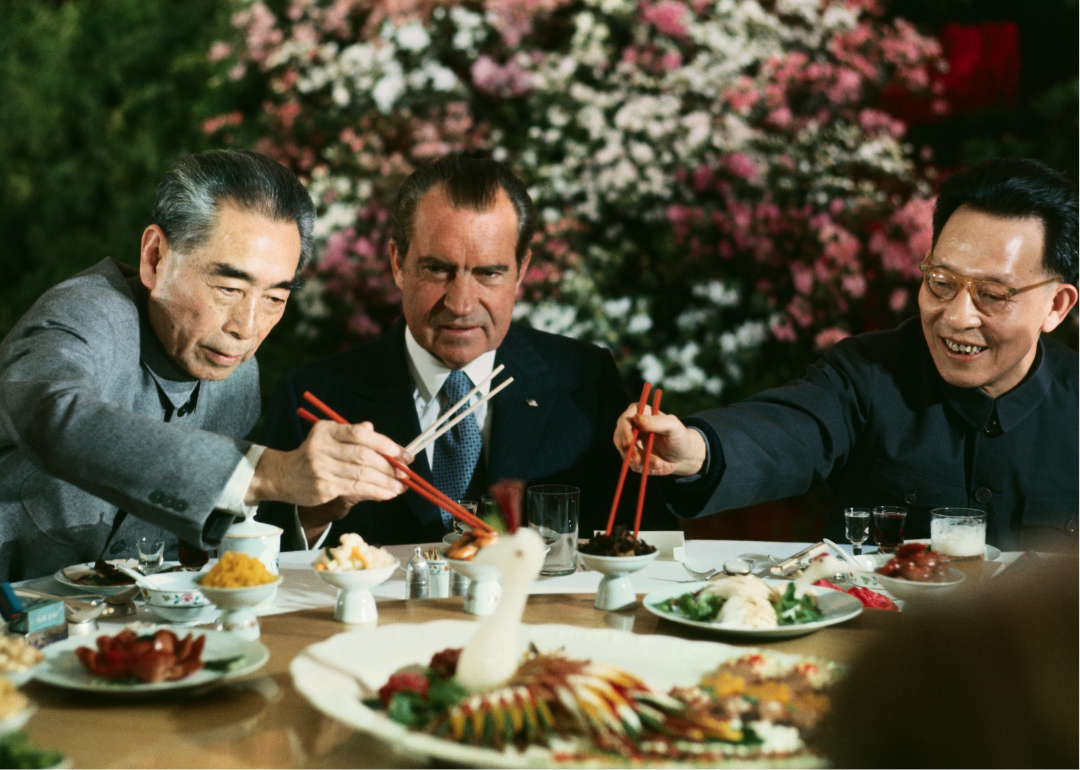
5 dinner parties that changed the course of history
This story originally appeared on Giggster and was produced and distributed in partnership with Stacker Studio.
5 dinner parties that changed the course of history
Alliances are forged, tempers ignite, and global politics shift—a lot can happen over dinner and cocktails.
No matter the time, a dinner invitation carries a certain significance. Sitting down for a meal with friends, colleagues, or rivals has been used across cultures and centuries as an opportunity to network, share, and celebrate.
Queens and kings used lavish banquets to showcase wealth, prosperity, and power. In midcentury America, dinner parties were often a performance of rising social status and a means to solidify important connections. The invitation to the proverbial seat at the table can even serve as a signal for trust and transparency among adversaries.
Giggster identified five legendary get-togethers and analyzed the context, major players, and historical significance. Unforgettable dinner parties have been the inciting force behind shifting politics, revolutions, and movements. However, sometimes, the historical interpretation can become more legendary than the event itself. Who could forget when Jesus invited his friends to dinner during Passover, changing the course of Christianity by predicting and toasting his betrayal and death?
Read on to learn more about the more memorable gatherings that shaped the world as we know it.
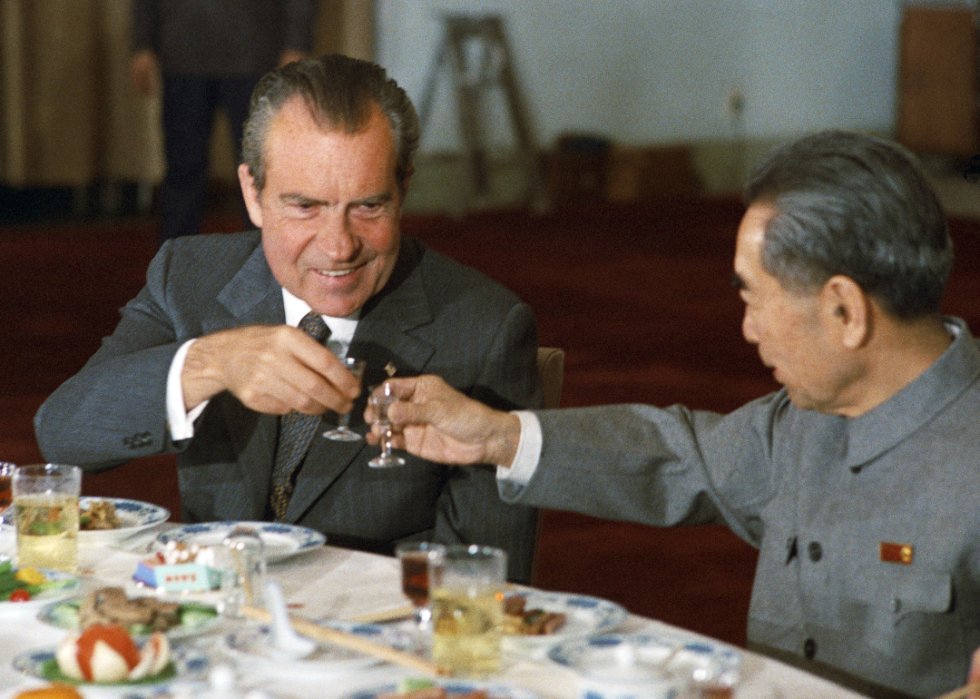
Nixon's presidential banquets in China (1972)
In the early 1970s and deep in the Cold War, the United States and the People's Republic of China expressed mutual distrust and ideologically opposed each other. Although that frosty relationship did not change overnight, banquets with President Richard Nixon and Premier Zhou Enlai in attendance proved a monumental step in breaking the ice.
Nixon's trip to China in 1972 marked the first time an American president had traveled to the Communist country while in office. On this momentous trip, Nixon and Zhou sat down to several formal dinners attended by the press and broadcast worldwide. During the farewell banquet, Nixon and Zhou toasted peace, harmony, and hopes for the future.
The success of this visit signaled a critical turning point for China: The diplomatic relationship forged between the U.S. and China played a crucial factor in the growing power's modernization and its elevating status among the international community.
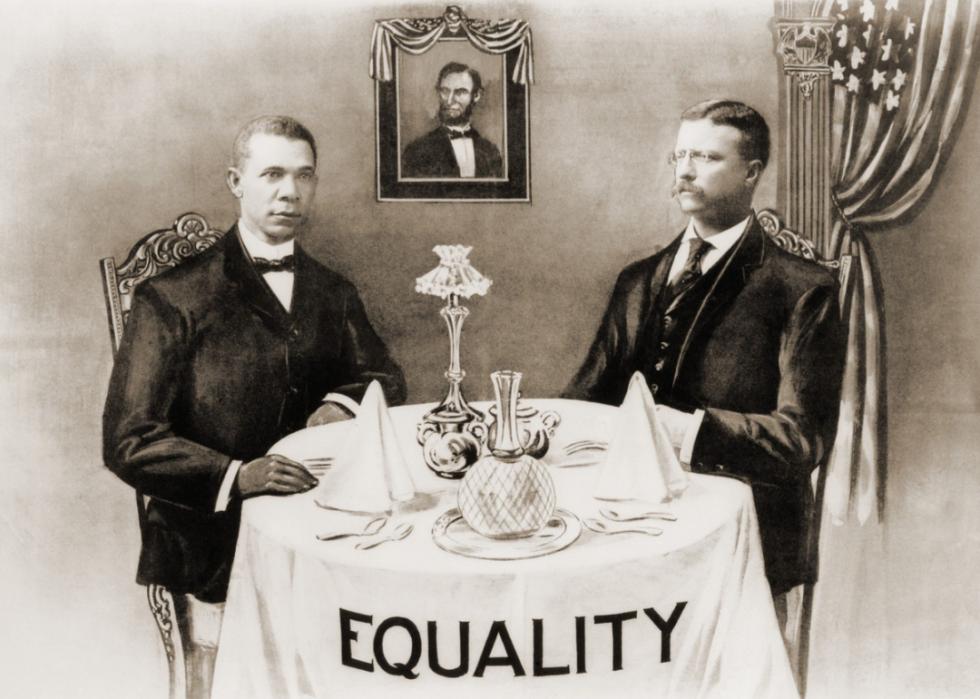
Teddy Roosevelt and Booker T. Washington's White House dinner (1901)
While the turn of the 20th century marked a more progressive era for the United States, violently enforced racial segregation remained the law of the land.
In 1901, President Theodore Roosevelt invited Booker T. Washington, a Black educator, writer, and leader, to dinner at the White House in an otherwise commonplace presidential practice of meeting with leading intellectuals. Although both free and enslaved Black people had visited the White House in some capacity at that point, the 1901 formal dinner invitation represented for many a symbol of social equality that could not be tolerated.
The South, a region already governed by terrorism as a means to control the Black population, erupted into fierce condemnation of Roosevelt and Washington receiving death threats.
The aftermath of a simple dinner invitation revealed the depth of America's commitment to segregation. It foreshadowed the violence the South was willing to undertake in the decades to come to protect this perceived rule. The government policies continued to endorse segregation by law until the Supreme Court declared it unconstitutional in 1954.
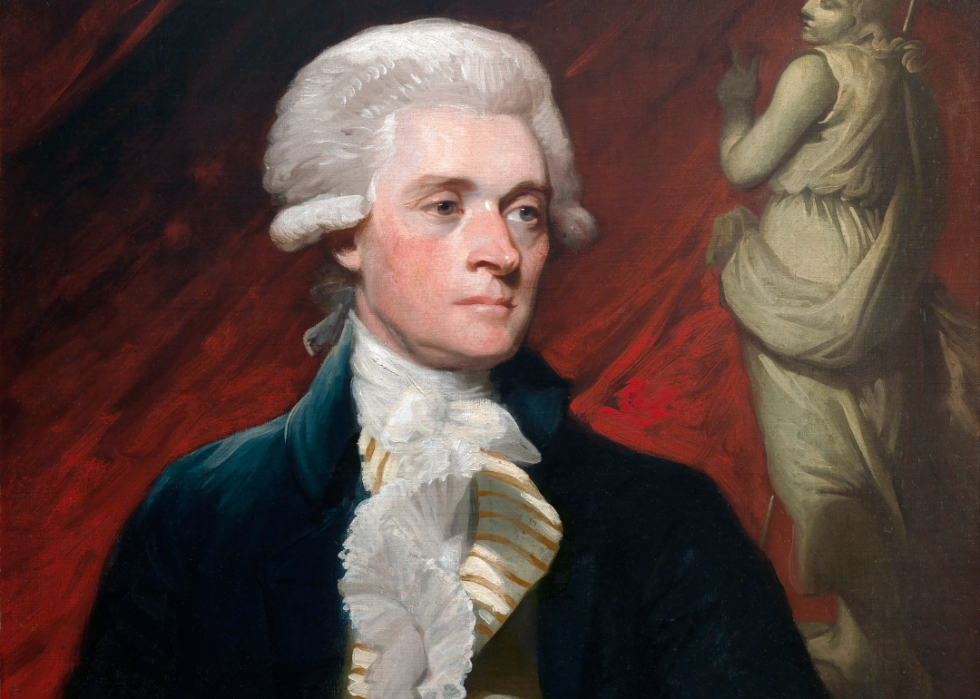
The Dinner Table Bargain (1790)
The Compromise of 1790 was one of the most impactful bargains in American history and set an important precedent for negotiation standards in U.S. politics. According to Thomas Jefferson's account, attendees established the details of this compromise over dinner.
Early in the country's governing history, Congress was in an unflinching deadlock over two key issues: the central government's role in settling states' debts and the location of the country's capital. In an effort to untangle the legislature, Jefferson invited political rivals Alexander Hamilton and James Madison over for dinner to hash out the disputes once and for all.
After the dinner, the three agreed to a compromise that allowed passage of legislation that would let the federal government assume the states' war debts and locate the capital on the Potomac.
Although the details of the struck deal remain mysterious, the dinner remains one of the earliest examples of reciprocity, or "logrolling," as a means to get things done in Congress. This practice lives on today as a Congressional norm.
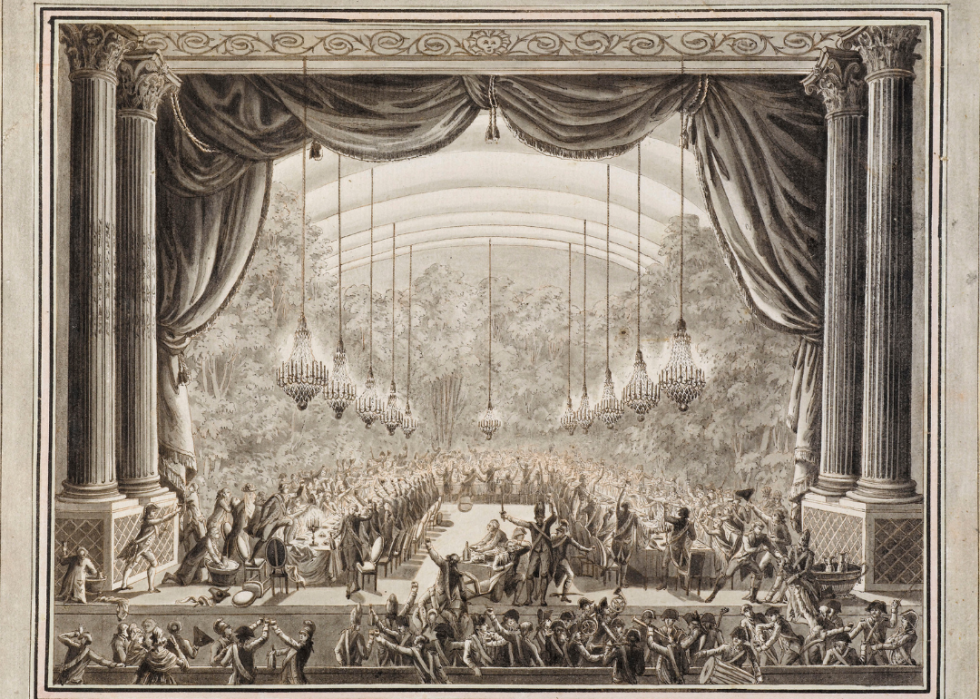
The King's party at Versailles (1789)
During the French Revolutionary period, the French royal family notoriously carried on in luxury at the Palace of Versailles while Parisians suffered through poor harvests, famine, and inflation. A lavish dinner party in the palace proved to be the lit match inside the powder keg of the materializing revolution.
On Oct. 1, 1789, the King's Guards held a banquet for 210 guests in the Opera House at Versailles. The royal family was welcomed with cheers, the orchestra played, and soldiers swore undying loyalty to the king in wine-fueled toasts. This act of opulence and monarchic loyalty was the final, egregious straw for Parisians who could not afford bread to feed their families.
As news of the banquet reached Paris, a crowd marched to Versailles, attacked the palace, and demanded economic relief and the King's return to Paris. The event known as the Women's March was one of the earliest and most significant events of the unfolding Revolution. It successfully forced King Louis XVI and his family out of Versailles and back to Paris.
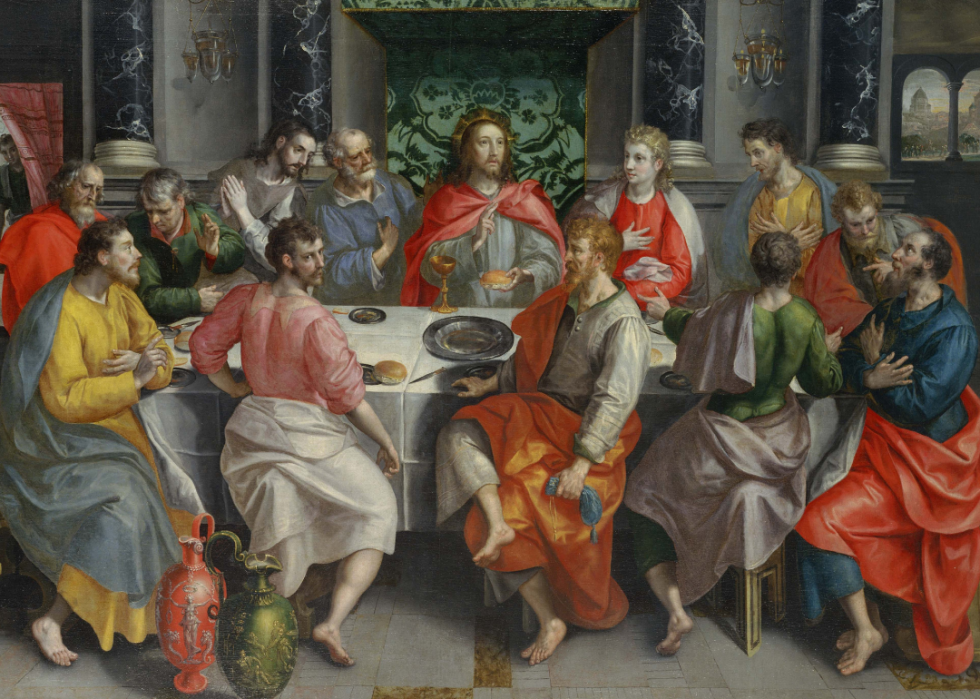
The Last Supper (circa 33 C.E.)
Although the Last Supper is undoubtedly one of the most important recorded events in Christian theology, the widespread debate over Jesus' words almost overshadows the significance of the event itself.
Gospel accounts generally agree that upon Jesus' return to Jerusalem, he invited his 12 disciples for a gathering in which he predicted the betrayal that led to his arrest and conveyed his impending sacrifice for humanity. At this supper, he also blessed the bread and wine, stating that it was his body and blood, starting an important ritual replayed in every Catholic mass to this day.
The Gospel record of Jesus' words and actions institutionalized many doctrines characterizing early Christianity, including salvation through sacrifice, a covenant between God and the people, and forgiveness. Roman Catholics regard his language about the bread and body literally and maintain the belief that once consecrated by the priest, the bread and wine transformed into Jesus' body and blood.
Other interpretations of scripture claim Jesus was speaking in metaphor. Protestant reformers utilized the dispute over this language to criticize and eventually split from the Church during the Reformation. This era of Christian history divided nations, led to widespread persecution, and shaped migration patterns throughout the world.
Story editing by Carren Jao. Copy editing by Kristen Wegrzyn.



